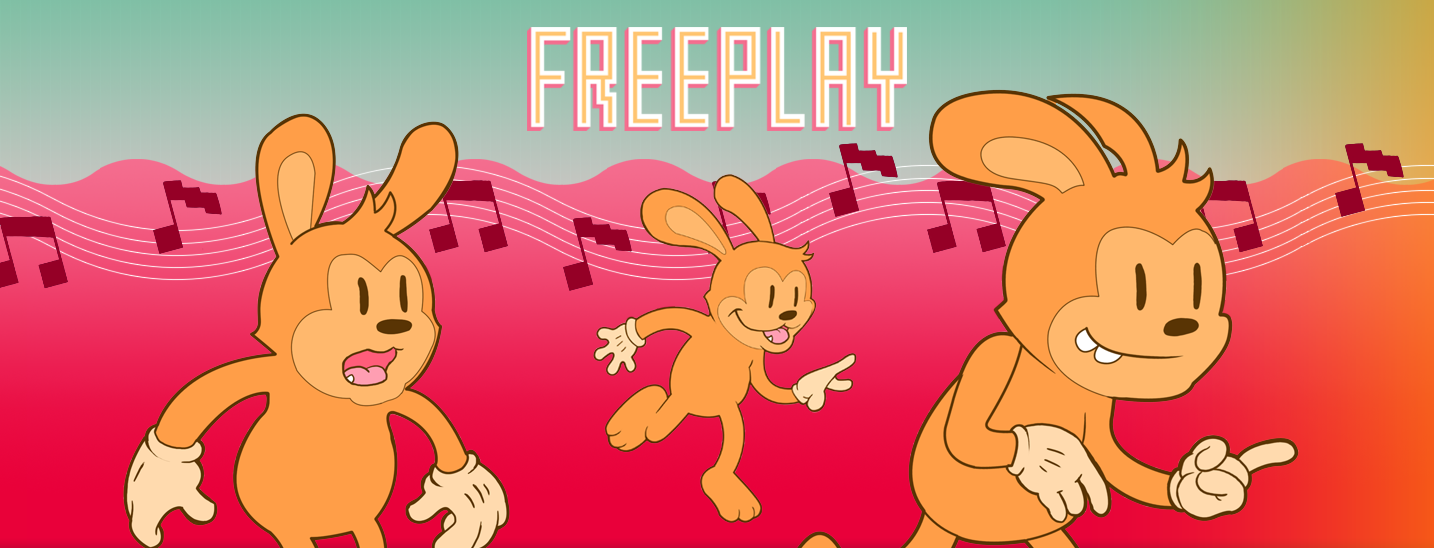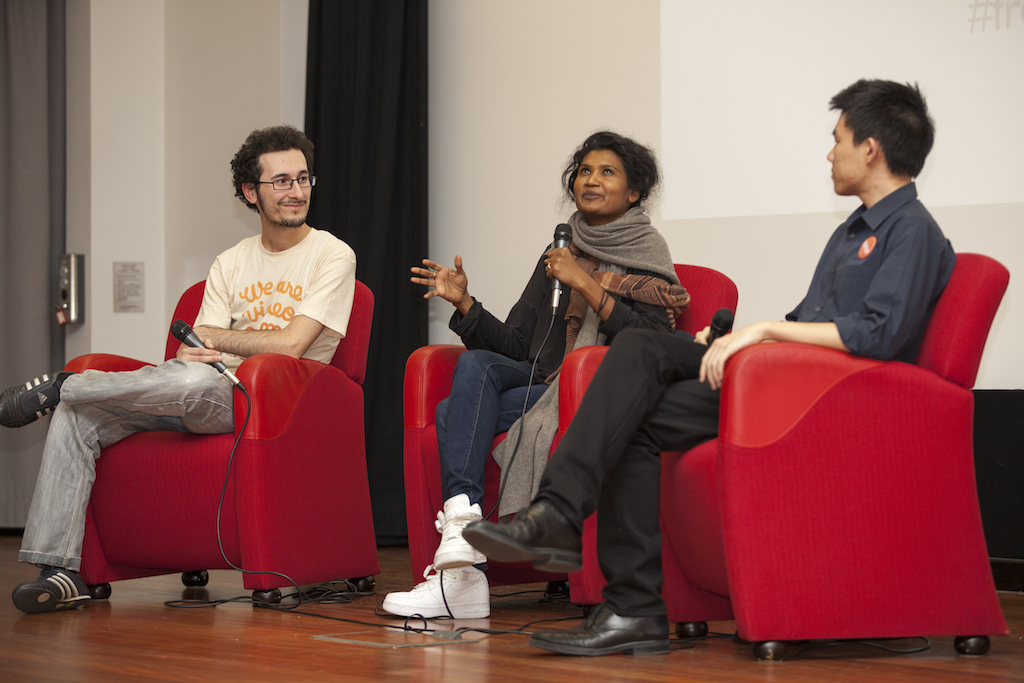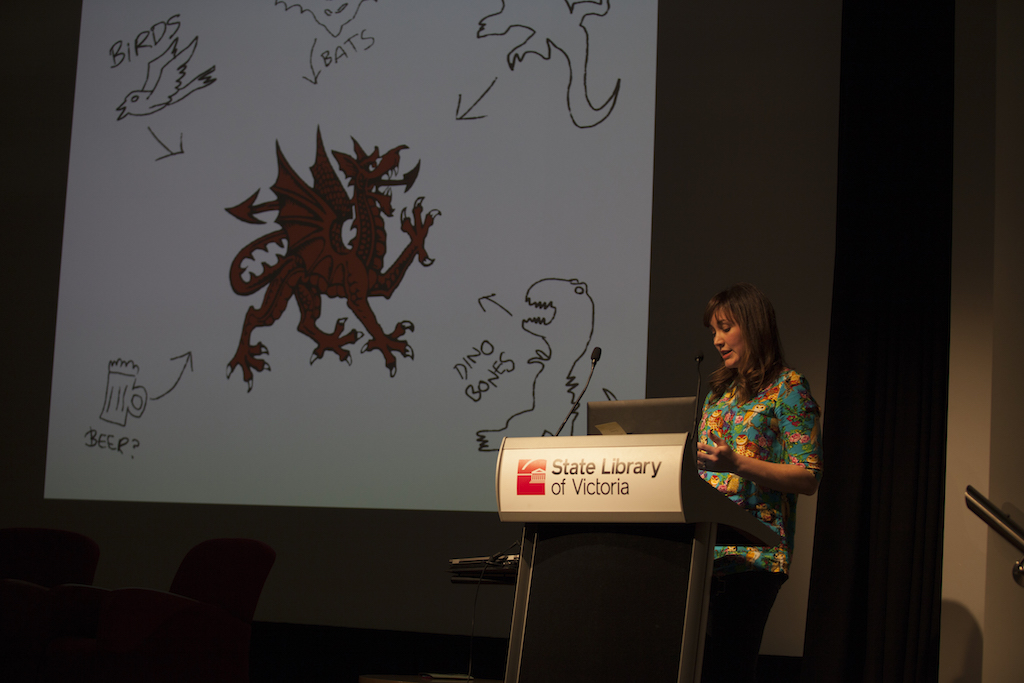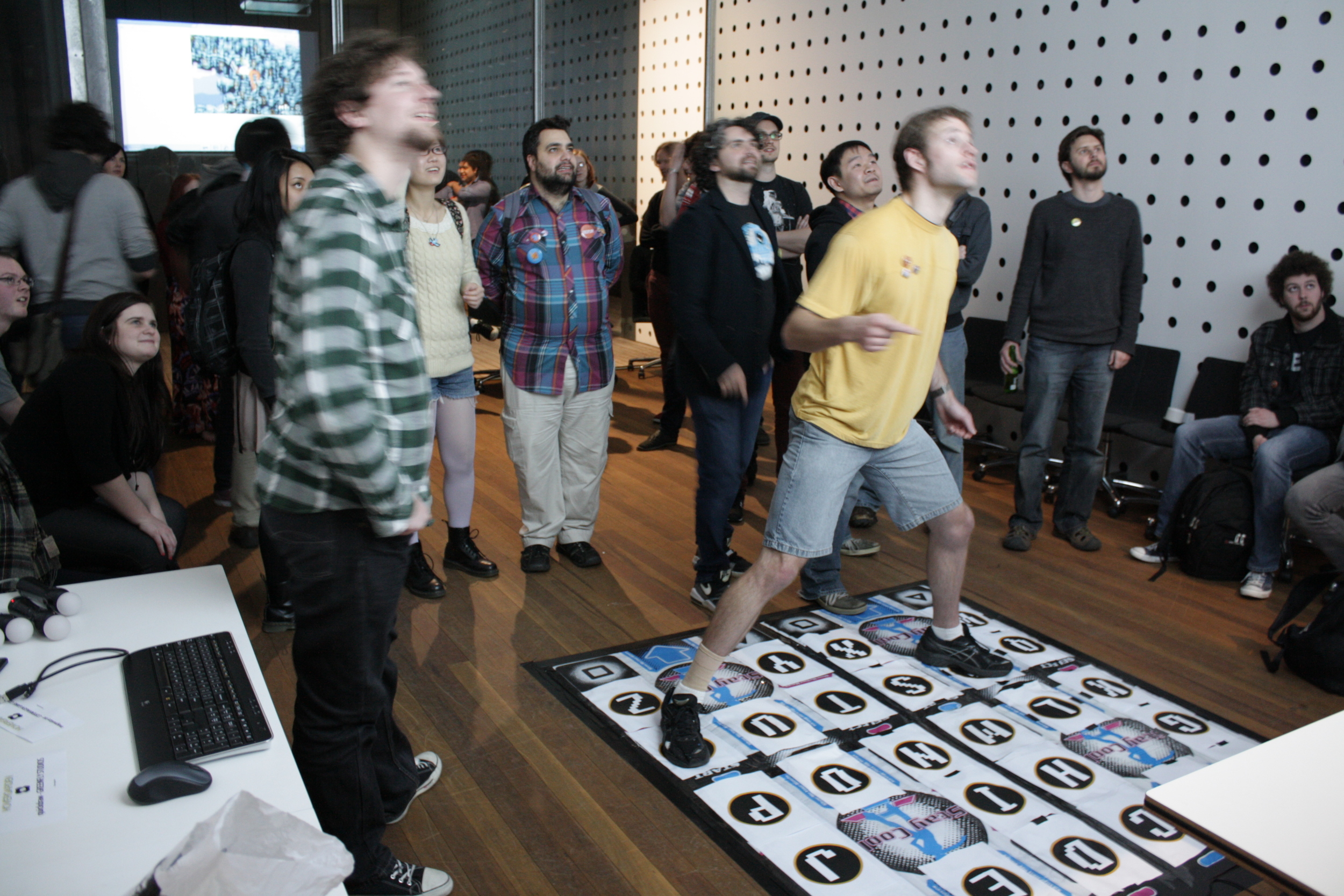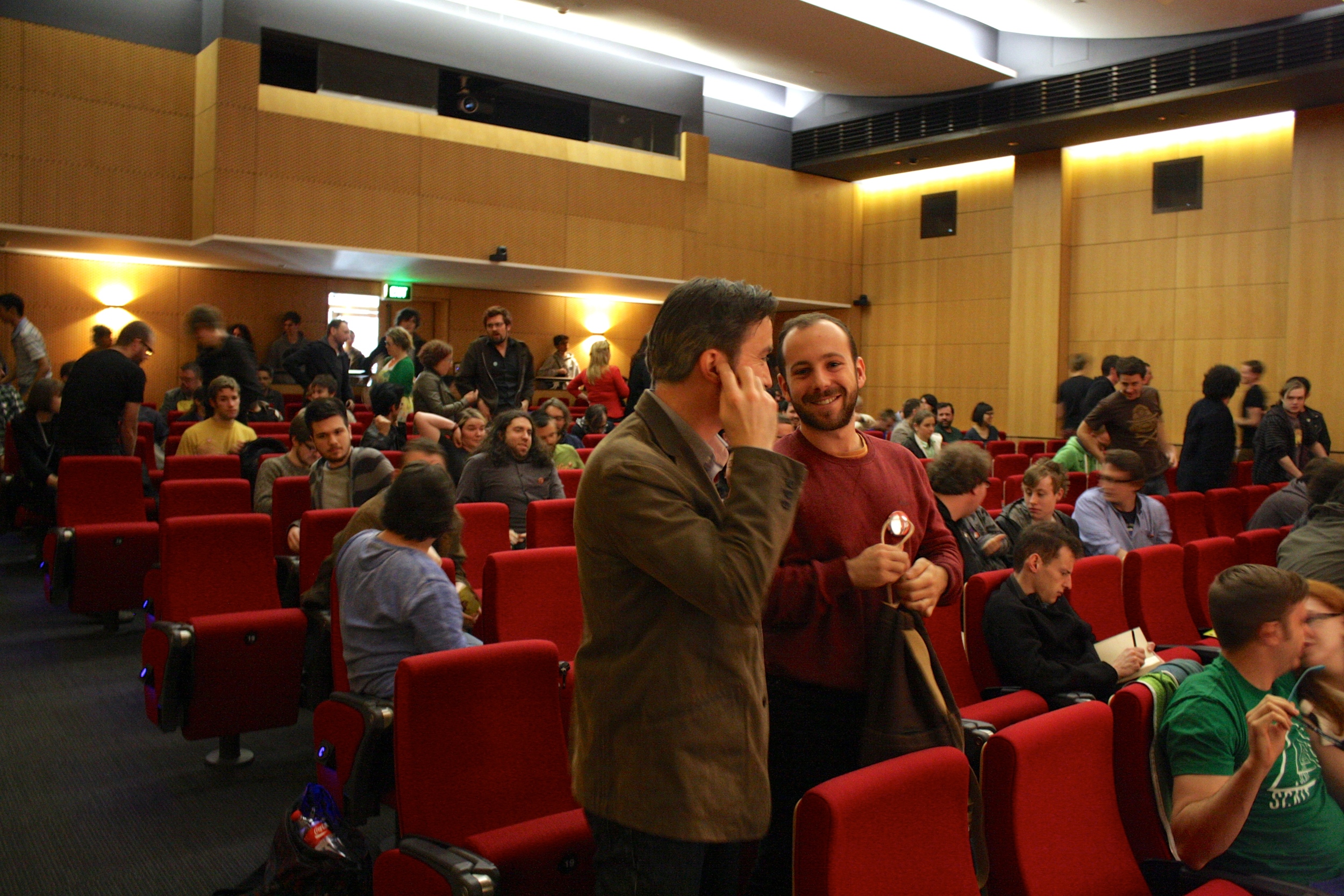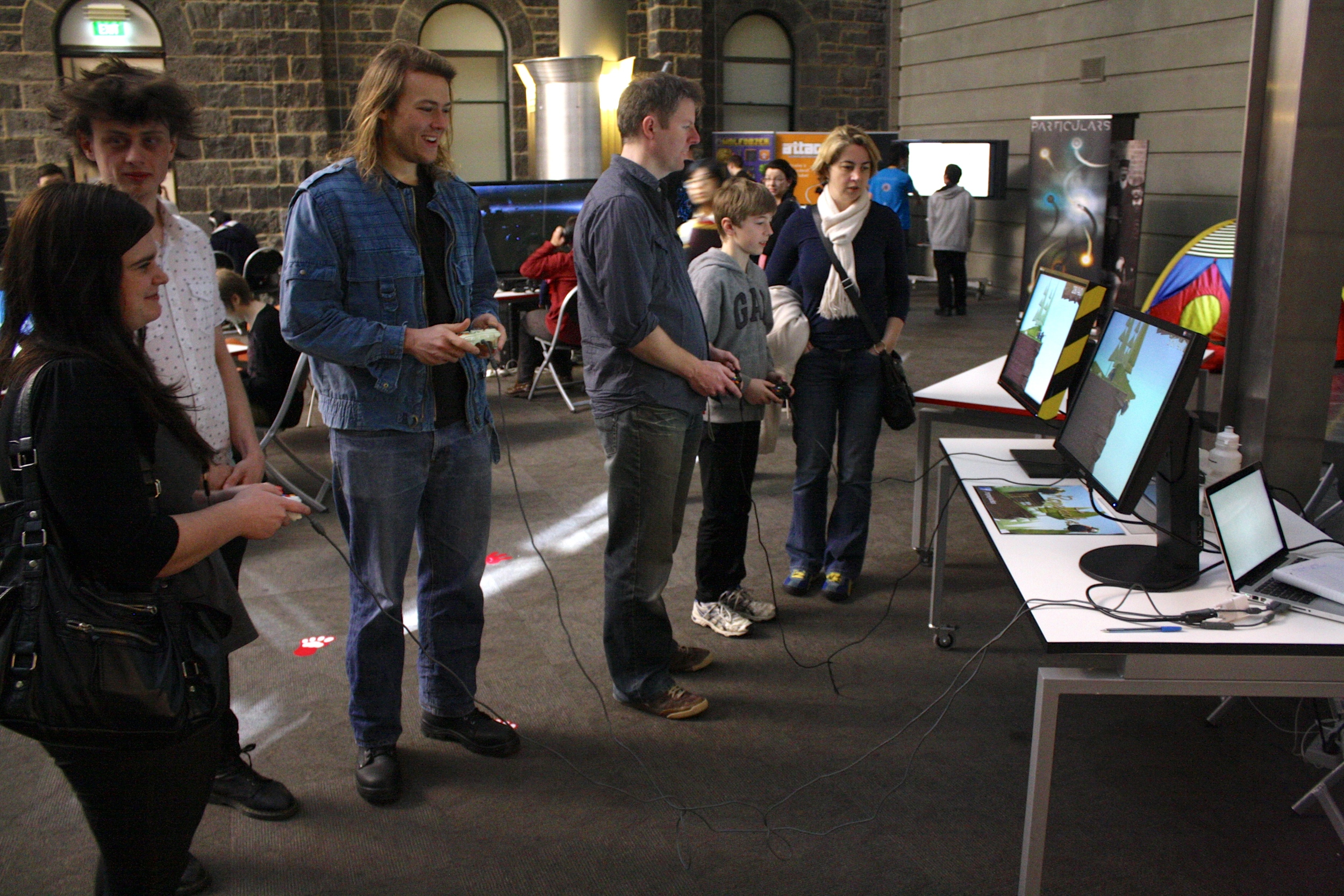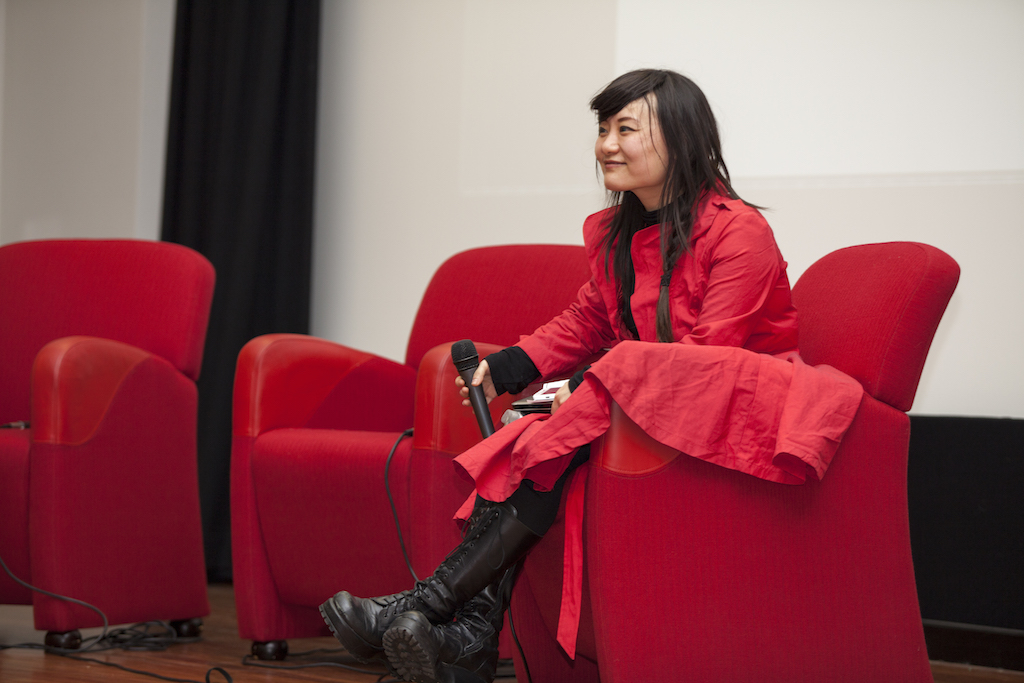Freeplay
Australian Independent Games Festival
September 2013, State Library of Victoria
www.freeplay.net.au
Freeplay is Australia's largest and longest running independent games festival. Since 2004, Freeplay has brought together a unique mix of players, makers, critics, artists, academics, students, and the public for a celebration of games and makers in all their forms. In 2013, I co-directed Freeplay with Katie Williams.
The theme of Freeplay 2013 was Volume of Revolution. Our directorial aims were to “expose, radically upend, celebrate, critically examine, and change our approach to making games”.
Excerpt from Playing Space: Freeplay Independent Games Festival 2013
“Freeplay gained two new co-directors, both of whom are young and well outside Australia’s traditional games industry. Twenty-year-old Harry Lee is a medical student and a game designer. Katie Williams, also in her twenties, is a games graduate and a journalist. Together, they steered Freeplay towards a redefinition: a redefinition of a festival, and of independent video games… The result was a distinctly punk-ish vibe”
Daniel Golding writing for Metro
Excerpt from Games culture needs to destroy itself to be reborn
“Last weekend Melbourne hosted a very different gaming event. The Freeplay conference and festival was geared towards critical exploration rather than an expo approach… With its firm focus on indie developers, insistence on putting the political and social elements of games on stage alongside the technical, and tearing down existing video game culture, Freeplay was almost too progressive for the mainstream.
This year's Freeplay was my first – I was invited to attend as a speaker – but I understand it was a little different, a little radical. The conference set politics alongside playfulness and merged conversations about class and gender with game design debate. An approach that didn't sit comfortably with everyone present but was perhaps more powerful for pushing at the boundaries.
Half the speakers were female, half had never spoken at Freeplay before, and many, myself included, do not call games full-time work. Keynote speeches by distinguished and talented video game designers Erin Robinson and Steve Swink were followed by panels, where part-time practitioners and creators working with accessible, rather than sophisticated, tools, took centre stage.
It provided a window into a possible future: small and interesting games, physical play mixing with digital, casual creators mixing with professionals, and a genuinely inclusive approach to both making and consuming games. If, in two years' time, conversations from the weekend are part of the mainstream culture of video games, then it will be in a very exciting place indeed.”
Mary Hamilton writing for The Guardian
